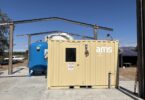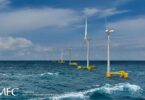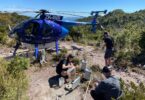Seaze is a thought-provoking new podcast that focuses on startups, entrepreneurs, and all things ocean. With hosts Marianne Brisson and Antonia Nicholls, it is steadily gaining an audience attracted by a growing list of fascinating guests. In this article, I talk to Marianne about what made her start Seaze, her journey, and her hopes for the future.
One of the biggest developments in the water industry is collaboration and bringing people with different skills and knowledge together. One good way to do this is through startups, which breed ideas and promote new technologies in an ecosystem where the boundaries between business and conservation are breaking down. Increasingly, entrepreneurs and small companies realise that it is possible to build a business while also protecting the environment, contributing to the economy, and helping coastal communities adapt.
As someone with a background on the coast, studying the marine environment, and also understanding business, Marianne is perfectly placed to see this process unfold. She was so inspired by some of the people filled with a passion for working with nature and the oceans, that she set up the Seaze podcast to find out more about the new generation of marine entrepreneurs. The podcast mixed her experience with innovation and sustainable technologies with Marianne’s love for the coast.
The Coastal Mentality
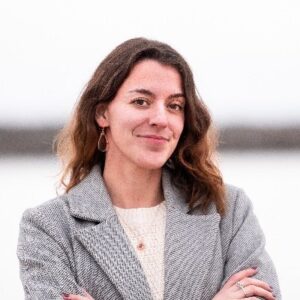
Marianne Brisson
Those of us who grew up on the coast are often a different breed, shaped by both sea and land, and Marianne is no exception. The ocean never truly leaves you and, after a process of deciding what she wanted to do in life, her beloved coastal community drew her back:
“I grew up in the Gaspé coast in coastal Quebec and was always surrounded by my community, which was basically fishermen. That’s what our economy was about, with a lot of tourism as well.
Marianne originally intended to go to medical school but changed direction and fell into studying political science and international business before realizing she wanted a change of direction.
“And at the end of doing all my classes required for my master, I realised that I always loved the environment and always loved the outdoors. I grew up being an ocean lifeguard; I spent my life living next to the ocean. And, I didn’t necessarily want to work in traditional business – I wanted to work in the ocean space.”
“I started to be really interested in the ocean space, but from a social and economic perspective. I also applied to go to a summer session at Duke University in the US, and I got, accepted as an international fellow. I was really grateful and was able to do two classes, one of marine ecology, which involved counting barnacles! Another was to use drones for marine conservation, which was super interesting. I love the intersection of technology used for conservation.”
This new direction and way of seeing the world gave her the push to return home to the familiar Gaspe coast’s rugged scenery.
“I went back home to the Gaspé coast from Ottawa. I just told myself, if I’m working from home, I would rather have a view on the ocean that have a view on Ottawa downtown. I’m not necessarily someone who enjoys cities and a lot of big buildings.”
Returning home also meant that Marianne noticed some of the changes in the local area and a number of projects intended to regenerate the area and support local communities:
“In the meantime, a new project was being developed in my region. A local economic development group was trying to basically bring to life a smaller scale Ocean Super Cluster, but in Quebec. We have a lot of traditional industry, but we also have a really great research centre, and we’re starting to get more and more startups. It just felt like a really great mix of all of my previous experiences and interests as well. For the ocean, how can we innovate to sustain the people who are living in the region, but also protect the ocean and livelihoods.”
Just as importantly, in her time away, Marianne now saw ways in which she could contribute to her community and use the knowledge gained in her time away. Almost by accident, the Seaze podcast emerged.
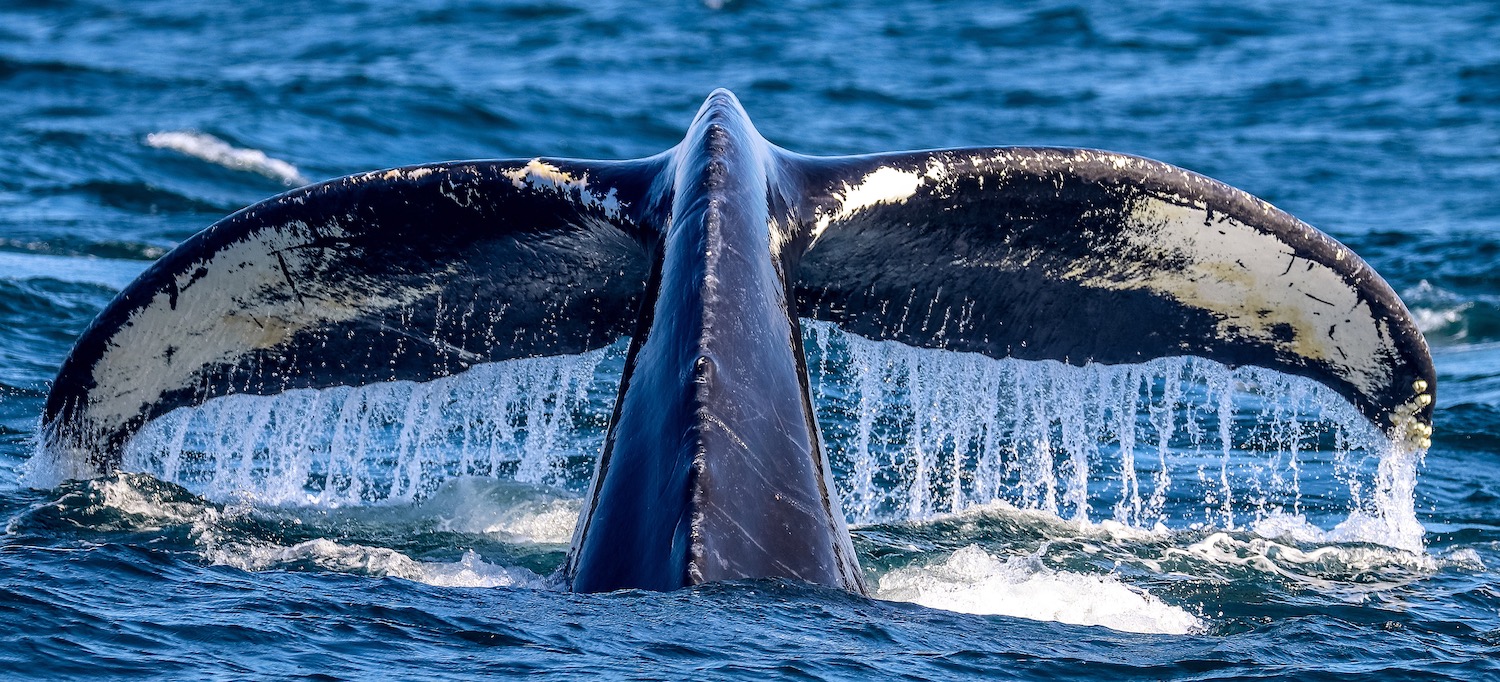
The Seaze Podcast
The Seaze podcast wasn’t the result of planning or seeking a career in broadcasting. It was one of those moments in life where things suddenly fall into place and a new road appears from nowhere.
“So, a year ago, I was actually looking for a podcast to listen about ocean entrepreneurs because it’s a niche that I was really interested in. I’ve always been interested in entrepreneurship and the freedom that comes with that, but knew that capitalism is usually not great for the ocean. I was just interested in knowing if there a way somebody could build a business and be totally positive for the ocean.”
“I just looked for a podcast and didn’t find one. So, I already had great connections through my work and I wanted to showcase those people because I think they have amazing ideas. My first guest was Emily Charry Tissier, the CEO and co-founder of Whale Seeker, which is a Montreal-based startup that aims to use AI to detect and protect marine mammals. She was gracious enough to be my first guest on the podcast – and that’s kind of how it started.”
Very quickly, Marianne realised that she had tapped into a largely unexplored region and had an opportunity to share her knowledge and experiences with the world. Naturally, with the success of her first interview, she needed to build on this and develop an identity and overall goals. Pretty soon, Marianne set out exactly what she wanted to achieve, determined to show people that innovation and startups are not just the domain of hardened entrepreneurs steeped in business degrees:
“Our goal is basically to show that you can be an entrepreneur and you can do great for the ocean, and for the environment. We wanted to bring conversations that are also easy for the general population to listen to. We’re not looking necessarily to have a really high complex conversation with our guests and we want people to know that entrepreneurship is accessible to anybody. Most of our guests actually are not from the ocean space, and that’s great.”
In Marianne’s opinion, everyone has unique skills that they can tap into to create a startup. Having a range of different backgrounds and goals is actually what brings life to the sustainable ocean economy.
“I feel like before, when I was growing up, if you want to work in the ocean space, you have to go to marine biology or oceanography. If you want to do business, you have to go to business school. And I feel like today, in the workplace, people are valuing interdisciplinary backgrounds which I really appreciate, because that’s what I have!”
“And I think it’s also really important to have people that are super expert in their niche, but also people who are able to understand the different issues from a high-level perspective. I struggled to be an expert in one field, but I think that I’m able to go speak to fisherman on the wharf, and I’m able to go to a lab and talk with PhD students and understand both worlds and carry those conversations.”
One area Marianne is particularly passionate about is the boundary between large corporations and startups, believing that each can contribute. Working together can balance out the strengths and weaknesses of each to create dynamic businesses and environments. These spaces encourage innovation and new ideas soon emerge that tackle environmental problems while still generating success.
“I think those big corporations are starting to maybe feel the weight of responsibility first. There are probably ways they can improve their production or supply chain and be more sustainable. And we see that, instead of trying to do it inhouse and not initially have the knowledge, you’re trying to reach out to startups who actually great into developing what they’re doing. So, we’re also seeing more collaboration through that space”
“There’s just so many new studies and new businesses that are coming out every day. One of my favourite companies was a French company that’s actually printing 3d surfboards out of algae. And it’s just absolutely amazing to see that people are finally looking into industries like the surf industry or other ocean enthusiasts like diving. I think those industries are a little hypocritical in the sense that we’re saying everybody should protect the ocean, taking underwater pictures, and following the surf lifestyle as well. But also, all the equipment we’re using is very problematic. We’re seeing a kind of a change and an alternative.”
The Future of Seaze
Although setting up a startup is important, making sure it grows can be the difficult part. Marianne understands that Seaze is no different and already has plans for the future so that the podcast will continue to grow and help exciting new startups share their message and ideas.
“Our goal is to obviously reach out to the people who love the ocean, but also reach out the mainstream business industry, especially people who are young. There’s a hype around financial business startups, and maybe we will not necessarily change your mind, but maybe open your mind and realise there’s a new way to create a business and yes, make money eventually. But also do good for people and support livelihoods and the environment.”
Marianne is very optimistic about the future and sees the changes in business with regard to sustainability and the environment. Now, increasingly, sustainability is an opportunity rather than a burden. With Seaze, she will continue to do everything in her power to make this happen:
I’d love to just be able to reach out to reach to those people and say, like, see, like, we have all of those nice startups that are doing great and they’re getting backed up by VCs. It’s possible now and not just utopia. I feel like a couple of years ago, we would have said ‘I want to save the ocean, and that’s my business model and goal.’ People will say, ‘What world are they living in?’ But I think it’s, it’s possible now. I think I’ve seen in the startups I’ve interviewed there’s a place for everybody.”
Marianne’s philosophy behind Seaze is very simple but captures exactly the ocean future she wants to promote:
“There’s space for everybody to try to make the ocean a better place.”
Follow the Seaze podcast at: https://seaze.co/the-podcast




